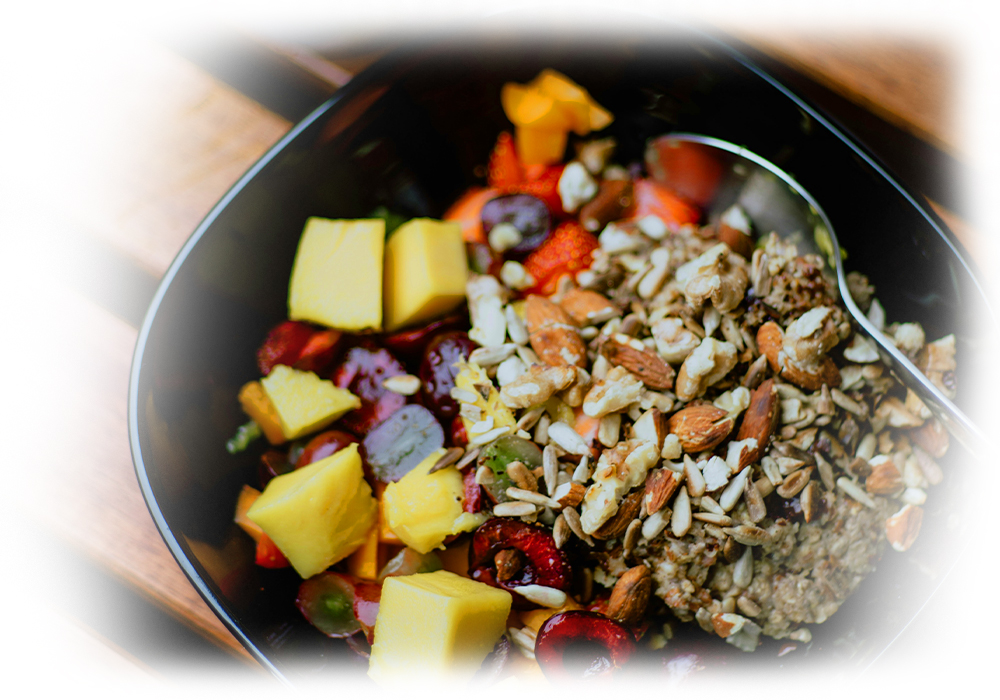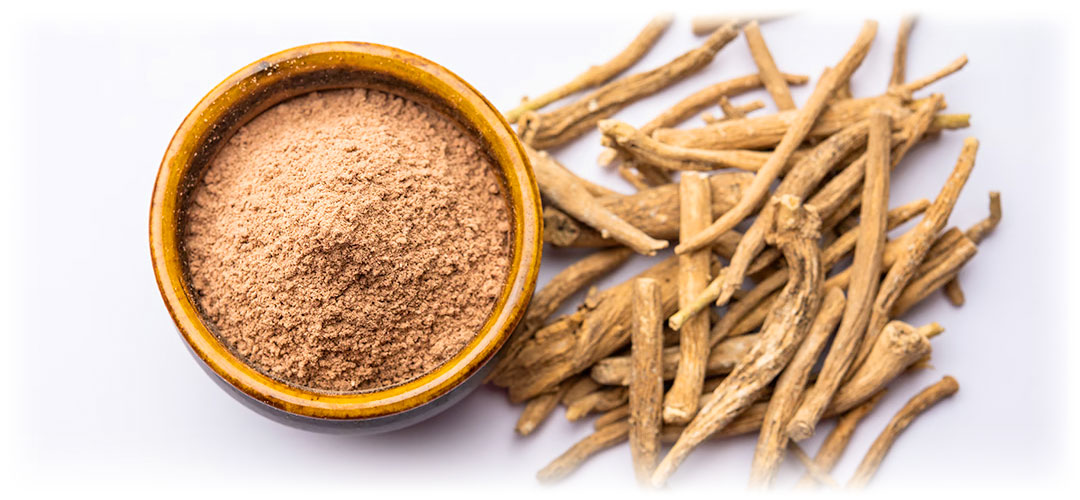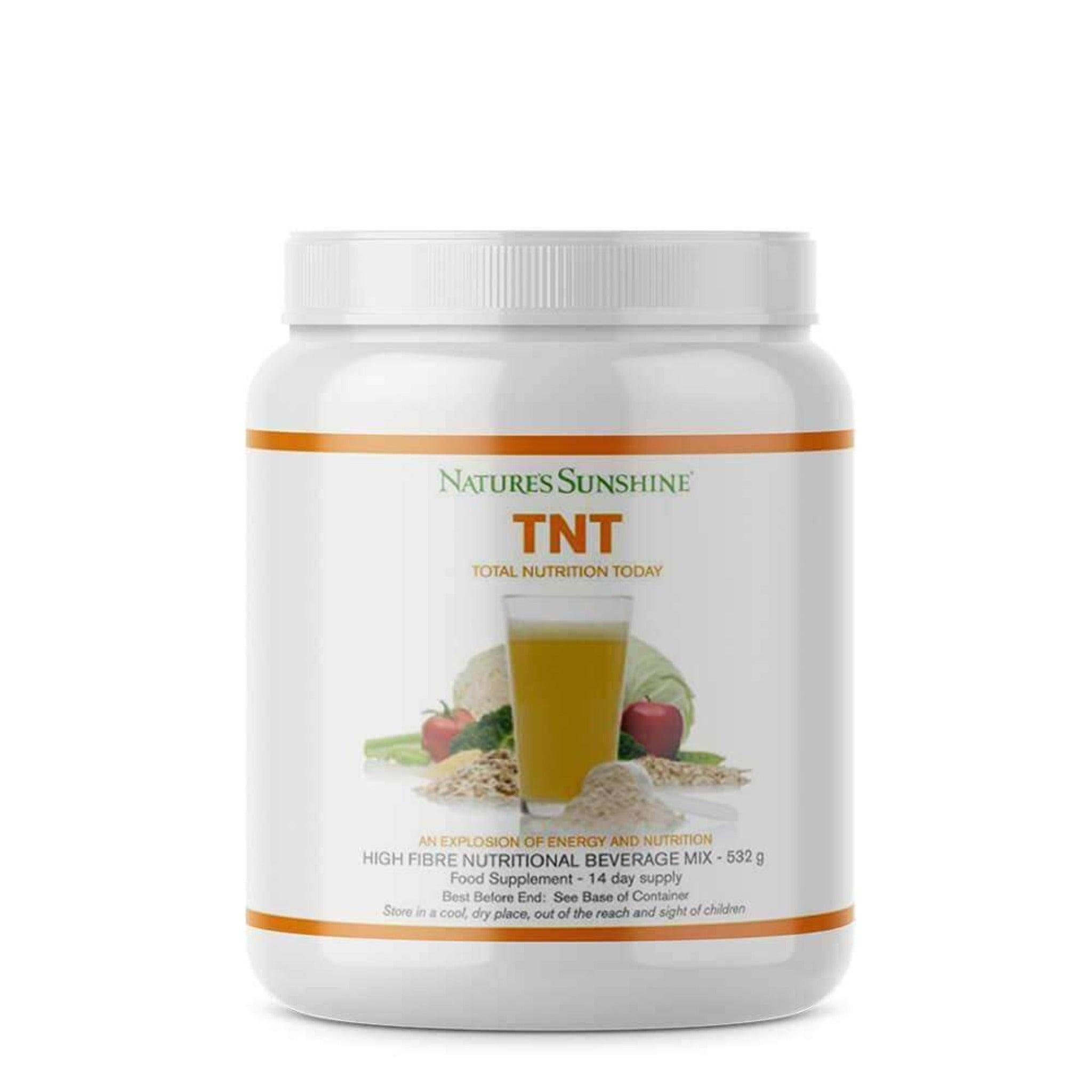
Top Ten FAQ's - Fibre
↓ What is dietary fibre?
Dietary fibre is a type of indigestible carbohydrate found in plant foods. It aids in digestion, helps maintain bowel and heart health, and helps you feel full after meals.1
↓ Why is fibre important for the diet?
Fibre is important for keeping the digestive system healthy, regulating blood sugar levels, and lowering the risk of heart disease. It also helps in weight management by helping you feel fuller for longer. The NHS recommends a daily intake of 30g of fibre per day for adults.2
↓ What are the two types of dietary fibre?
The two types of dietary fibre are soluble, which dissolves in water and may help lower glucose levels and blood cholesterol, and insoluble, which does not dissolve in water and helps food move through the digestive system.3
↓ What are the best sources of dietary fibre?
Good sources include fruits, vegetables, whole grains, legumes, nuts, and seeds.4
↓ Can fibre help with weight loss?
A well-balanced diet that includes plenty of high-fibre foods may help control weight by creating a feeling of fullness and improving bowel habits.5
↓ Can too much fibre be harmful?
Excessive fibre may lead to digestive discomfort, nutrient absorption issues, dehydration, constipation, or diarrhoea, especially if fibre intake is increased suddenly.6
↓ How can I add more fibre to my diet?
You can increase your fibre intake by eating more whole fruits, vegetables, whole grains, and legumes. To do this, eat fibre with every meal or snack.
↓ What are the signs of a low-fibre diet?
Signs can include constipation, unstable blood sugar levels, high cholesterol, and difficulty managing weight.7
↓ Does cooking or processing affect fibre content?
Some fibre may be lost during cooking or processing, but most foods retain plenty of fibre even after these methods.
↓ Are fibre supplements as good as natural sources?
While fibre supplements may be beneficial, getting fibre from natural sources is preferable because foods contain a variety of other essential nutrients.8
In the bustling aisles of nutrition and health, fibre stands as an unassuming hero.
Often overlooked in favour of flashier nutrients, this dietary stalwart is essential for our well-being. With profound benefits ranging from improved digestion to chronic disease prevention, understanding and incorporating fibre into your diet can be a game changer for your health. Let's unravel the mystery of dietary fibre and discover how it can transform your lifestyle.
What is Dietary Fibre?
Dietary fibre, often referred to as roughage, is found in the cell walls of plant-based foods. It's a type of carbohydrate that the body can't digest, which means it passes through your digestive system relatively intact.1 But don't let its indigestibility fool you; fibre's journey through your body is where its magic happens.

The Two Types of Fibre
Fibre comes in two varieties, both indispensable for different reasons:
- Soluble Fibre: This type dissolves in water to form a gel-like substance, helping to lower blood cholesterol and glucose levels. It's found in oats, peas, beans, apples, citrus fruits, carrots, barley, and psyllium.6
- Insoluble Fibre: This type increases stool bulk and helps food pass more quickly through the stomach and intestines, aiding in regular bowel movements. Good sources include whole wheat flour, wheat bran, nuts, beans, and vegetables, such as cauliflower, green beans, and potatoes.6
The Far-Reaching Benefits of Fibre
The benefits of fibre extend well beyond the bathroom. Here's how a high-fibre diet can significantly impact your health:
- Digestive Health: Fibre increases the weight and size of your stool and softens it, decreasing your chance of constipation. If you have loose, watery stools, soluble fibre can help to solidify them because it absorbs water and adds bulk to stool.6
- Weight Loss and Maintenance: Because they’re digested more slowly, high-fibre foods tend to be more filling than low-fibre foods. This means you're more likely to stay satisfied longer when eating more fibre, which may help you eat less.5 Plus, high-fibre foods tend to be more "nutrient-dense," meaning they provide important nutrients your body needs for health.
- Blood Sugar Control: Fibre, particularly soluble fibre, may slow the absorption of glucose and help improve blood sugar levels. This is a key advantage for those managing diabetes.9
- Heart Health: Fibre is an important element of heart health. Adequate fibre intake may reduce your risk of developing heart disease by lowering low-density lipoprotein (LDL), or “bad” cholesterol levels.10
- Longevity: Studies have indicated that a high-fibre diet may lower your risk of dying from cardiovascular disease and all cancers.11

How Much Fibre Do You Need?
The NHS suggests an intake of 30 grams of fibre per day for adults. However, the average UK adult eats only about 18 grams of fibre a day, which is not nearly enough.2
Incorporating Fibre into Your Diet
Boosting your fibre intake is easier than you might think. Here are some tips:
- Start Your Day with Whole Grains: Choose a high-fibre breakfast cereal or oatmeal.
- Switch to Whole Grains: Opt for whole-grain bread, pasta, and rice at least 50% of the time.
- Bulk Up Baking: Use whole-wheat flour for baking and toss in nuts or seeds.
- Snack Smart: Snack on whole fruits and vegetables paired with a protein (and fibre) source like nuts, nut butter, or hummus.
- Legumes Are Your Friends: Incorporate beans, lentils, and chickpeas into your meals and snacks.
- Fibre-Rich Substitutions: Use chickpea flour or almond flour in recipes for an extra fibre boost.
Potential Pitfalls
While fibre is fabulous, it’s best to increase intake gradually to prevent bloating, gas, or diarrhoea. Also, drink plenty of water, as fibre works best when it absorbs liquid.6
Embracing fibre-rich foods can provide a plethora of health benefits. From aiding digestion to protecting your heart, the impact of this nutrient is both broad and profound. With careful consideration and a bit of planning, you can easily meet your daily fibre goals and pave the way for a healthier, happier life. Remember, when it comes to dietary fibre, what's good for the gut is good for the heart, and what's good for the heart is good for a lifetime.
References
- Barber TM, Kabisch S, Pfeiffer AFH, Weickert MO. The Health Benefits of Dietary Fibre. Nutrients. 2020;12(10):3209. doi:10.3390/nu12103209
- National Health Service. How to get more fibre into your diet.
- Guan ZW, Yu EZ, Feng Q. Soluble Dietary Fiber, One of the Most Important Nutrients for the Gut Microbiota. Molecules. 2021;26(22):6802. doi:10.3390/molecules26226802
- Dietary Guidelines for Americans. Food Sources of Dietary Fiber.
- Kelly RK, Calhoun J, Hanus A, Payne-Foster P, Stout R, Sherman BW. Increased dietary fiber is associated with weight loss among Full Plate Living program participants. Front Nutr. 2023;10:1110748. doi:10.3389/fnut.2023.1110748
- Ioniță-Mîndrican CB, Ziani K, Mititelu M, et al. Therapeutic Benefits and Dietary Restrictions of Fiber Intake: A State of the Art Review. Nutrients. 2022;14(13):2641. doi:10.3390/nu14132641
- Better Health Channel. Dietary fibre.
- McRorie JW Jr. Evidence-Based Approach to Fiber Supplements and Clinically Meaningful Health Benefits, Part 1: What to Look for and How to Recommend an Effective Fiber Therapy. Nutr Today. 2015;50(2):82-89. doi:10.1097/NT.0000000000000082
- McRae MP. Dietary Fiber Intake and Type 2 Diabetes Mellitus: An Umbrella Review of Meta-analyses. J Chiropr Med. 2018;17(1):44-53. doi:10.1016/j.jcm.2017.11.002
- McRae MP. Dietary Fiber Is Beneficial for the Prevention of Cardiovascular Disease: An Umbrella Review of Meta-analyses. J Chiropr Med. 2017;16(4):289-299. doi:10.1016/j.jcm.2017.05.005
- Xu X, Zhang J, Zhang Y, Qi H, Wang P. Associations between dietary fiber intake and mortality from all causes, cardiovascular disease and cancer: a prospective study. J Transl Med. 2022;20(1):344. doi:10.1186/s12967-022-03558-6














